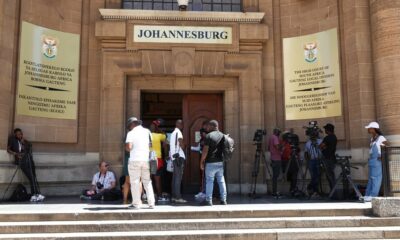News
Online Gambling Confusion in South Africa: Why the Gauteng Court Ruling Isn’t a National Ban

Online Gambling Confusion in South Africa: Why the Gauteng Court Ruling Isn’t a National Ban
A recent Gauteng High Court judgment on roulette betting has stirred confusion among gamblers and operators across South Africa. But according to seasoned gambling law expert Wayne Lurie, the ruling has been widely misunderstood and it doesn’t spell a nationwide ban on online gambling.
How the Confusion Began
The controversy began after the National Gambling Board (NGB) released a statement implying that a Supreme Court of Appeal-backed decision meant online gambling was illegal countrywide. The case involved Portapa (trading as Supabets), which had been offering bets on live-streamed roulette games from Lithuania.
The Casino Association of South Africa (CASA) filed a complaint, arguing that under section 55 of the Gauteng Gambling Act, bookmakers can only take bets on “sporting events.” Supabets argued that this contradicted the National Gambling Act, which allows bookmakers to offer bets on “any contingency.”
However, both arguments were dismissed by the court. The judges found that roulette is a casino game, not a sporting event, meaning it can only be offered under a casino licence, not a bookmaker’s licence.
After the ruling, the NGB announced that offering bets on casino games like roulette was unlawful and many media reports echoed that claim as if it applied nationwide.
Lurie: “It’s a Provincial Matter, Not a National Prohibition”
Lurie, who has practised gambling regulatory law for nearly 24 years and heads the South African Responsible Gambling Association, says that’s not what the court said at all.
“The ruling only interprets a single clause in the Gauteng Gambling Act,” he explained. “It doesn’t speak to the legality of online gambling in South Africa, nor does it invalidate operations licensed in other provinces.”
He emphasised that each province has its own regulatory autonomy, guided by the National Gambling Act, which sets national norms but leaves licensing and enforcement to provincial authorities.
“In simple terms,” Lurie said, “what’s illegal in Gauteng may be perfectly lawful in the Western Cape or Mpumalanga.”
He added that provincial discretion is vital to tailoring gambling policy to local economic realities and social priorities and overturning that balance would require a constitutional amendment, not a “reckless press release.”
Different Provinces, Different Rules and Revenues
The difference in provincial laws is also reflected in the numbers.
According to the National Gambling Board’s latest report, Mpumalanga now leads the country in total money wagered, a staggering R623 billion, or 41.5% of the national total. The Western Cape follows with R402 billion (26.8%), while Gauteng, despite being South Africa’s most populous province, trails at R179 billion (12%).
The gambling sector overall generated R75 billion in revenue, up by R16 billion from the previous year. Most of that came from betting (R52 billion), followed by casinos (R17 billion), slot machines (R4.1 billion), and bingo (R1.7 billion).
Still, there’s a twist: while Mpumalanga accounts for the largest share of wagers, businesses there earned just 30% of total gambling revenue, or R22.2 billion, nearly all from betting.
Compare that to 2019/20, when Gauteng dominated the market, generating 40.2% of total gambling revenue. The landscape has clearly shifted.
Public Confusion and Industry Reaction
The ruling’s misinterpretation triggered uncertainty on social media, with some users assuming that all online betting, from sports to e-sports had suddenly become illegal. Operators in other provinces have been quick to reassure clients that their provincial licences remain valid.
Industry observers say the incident exposes a deeper problem: South Africa’s fragmented gambling framework. With nine provinces and overlapping national legislation, even experts sometimes struggle to keep the rules straight.
“This confusion shows why harmonising gambling law, without undermining provincial powers, should be a priority,” one betting industry analyst noted.
A Call for Clarity
While Lurie’s clarification has brought some calm, the misunderstanding reveals how fragile public trust in gambling regulation can be. South Africa’s gambling sector employs thousands and contributes billions in taxes, yet remains subject to legal uncertainty and bureaucratic overlap.
For now, gamblers and operators can breathe a little easier: online betting isn’t banned in South Africa, at least, not everywhere. But as provinces continue to interpret their own rules, the need for clearer national guidance is becoming impossible to ignore.
The Gauteng court’s roulette ruling is not a national prohibition. It’s a provincial interpretation and one that highlights South Africa’s patchwork approach to gambling regulation. The real gamble, perhaps, lies in leaving that confusion unaddressed.
{Source: News Day}
Follow Joburg ETC on Facebook, Twitter , TikTok and Instagram
For more News in Johannesburg, visit joburgetc.com


























